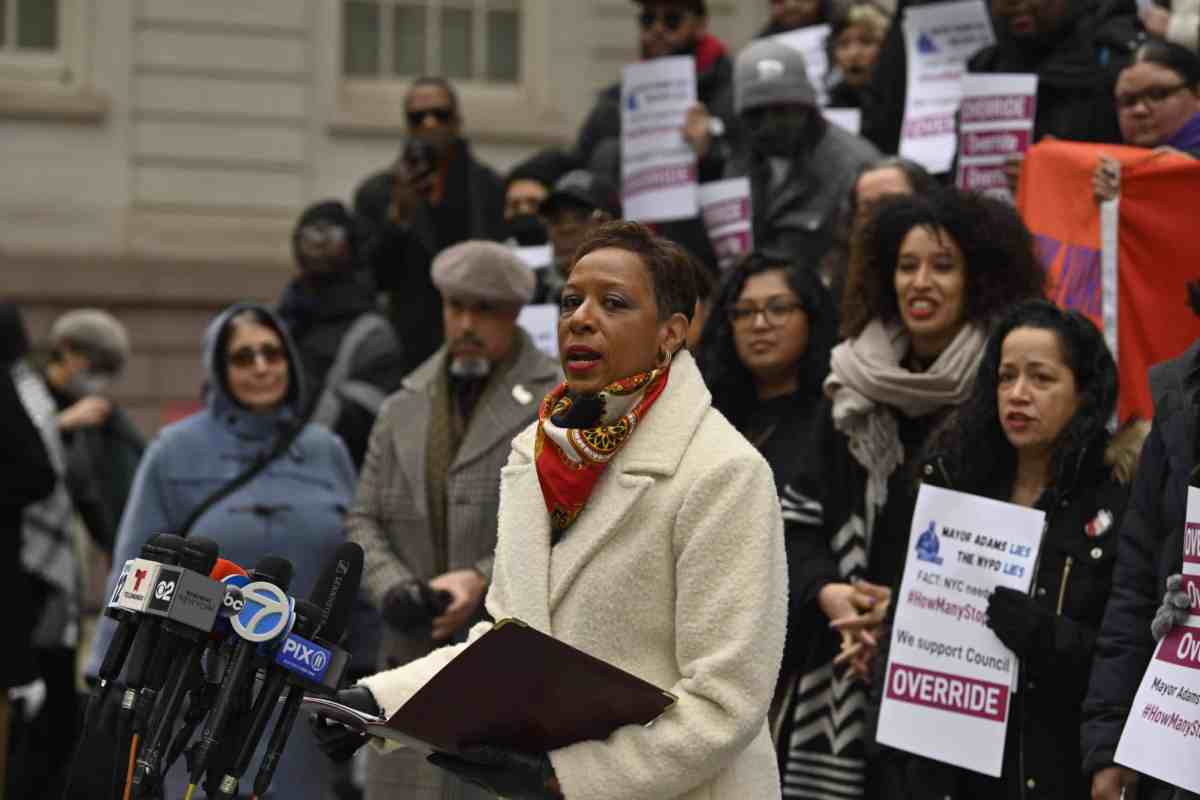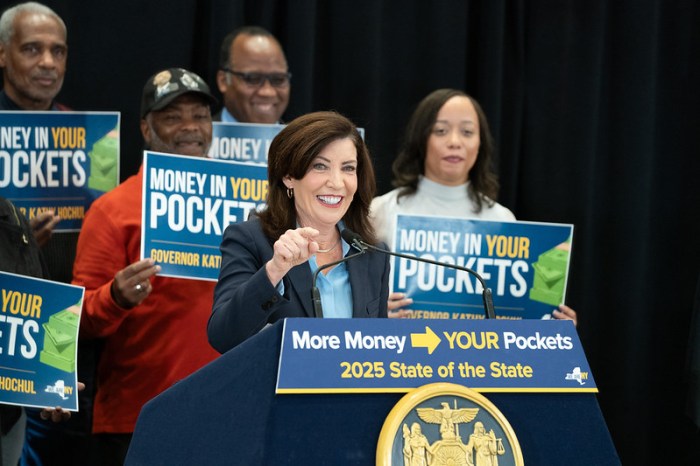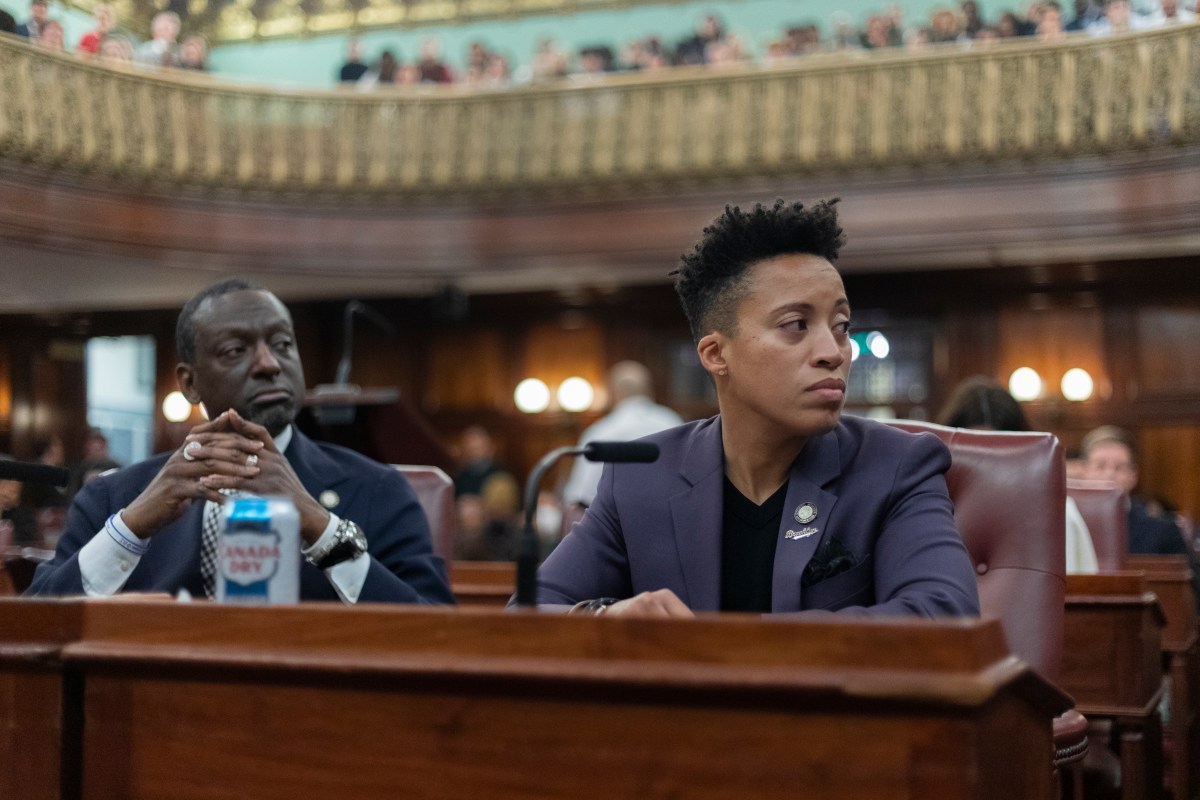When the City Council overrode Mayor Eric Adams’ veto of the “How Many Stops Act” police transparency legislation on Tuesday, it did so with several more votes than the measure originally passed by late last year, despite a fierce lobbying campaign by the mayor.
City Council Speaker Adrienne Adams gained seven council members voting in favor of the override who in December went against the measure, abstained or were absent from the proceedings. The shift yielded 42 members voting in favor of the override on Tuesday, up from 35 who went for the two-bill package when it originally passed in December and the 34 votes needed to override a mayoral veto.
Only the council’s bipartisan, nine-member Common Sense Caucus stood together against it.
The council members who added their votes to the “yes” column this time around included Erik Bottcher (D-Manhattan — the only member to flip from voting against the now-laws in December); Mercedes Narcisse (D-Brooklyn), Linda Lee (D-Queens), and Francisco Moya (D-Queens) — who all abstained late last year; and James Gennaro (D-Queens), Sandra Ung (D-Queens) and Darlene Mealy — who were absent from the previous vote.
The How Many Stops Act is aimed at curbing police misconduct by requiring NYPD officers to report on the demographics of lower-level civilian encounters — known as “Level 1” and “Level 2” stops. The mayor vetoed the legislation on the grounds that it would put an undue burden on police officers, piling on hours of additional paperwork, and ultimately make the city less safe — arguments the council has casted as “misinformation.”
Mayor Adams made a concerted and very public effort to lambast the laws and flip votes through videos released by his office, public events, media appearances and inviting council members to an NYPD ride along this past weekend. Although none of those efforts worked in flipping members, Adams maintained before Tuesday’s vote that if many unnamed members were free to vote “with their hearts” they would not have supported the override.
Making a statement
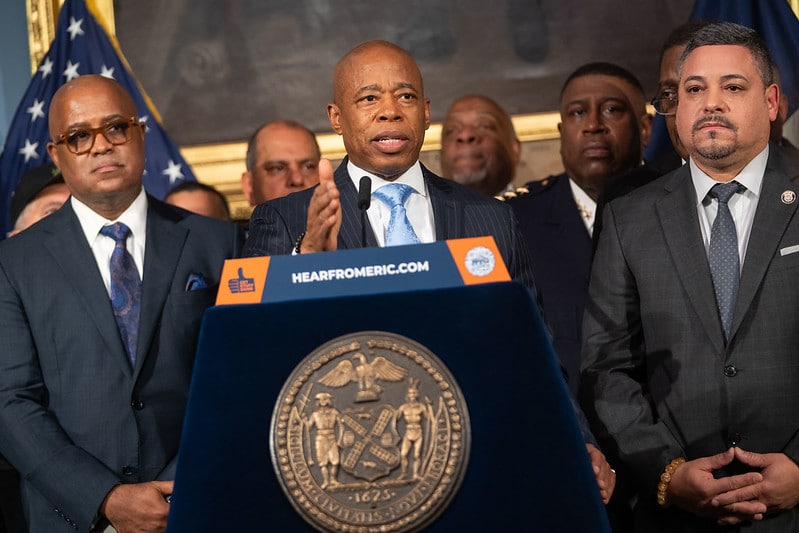
A council source told amNewYork Metro there were a couple of key reasons why seven more members voted for the measure on Tuesday than in December.
First, the source said, those who did not vote in favor of the laws last month took time to familiarize themselves with the contents of the legislation and weigh that against City Hall’s casting of what it would do. And second, overriding a veto is about standing up for the council as a co-equal branch of government.
“It was the overwhelming policy merit of what this bill was set up to do that struck a balance,” they said. “And the institution and independent branch of government needs to exercise its powers and confirm that what the institution has passed before remains true and we are fighting to maintain the decision that the body has made.”
Narcisse, in an interview, said she changed her mind because she had a chance to “go deeper” on the contents of the legislation and sift through what she characterized as the “misguided information” being pushed by the administration. She said she learned that much of what the law calls for in terms of recording low-level encounters is already being done — appearing to refer to demographic data collected for higher level stops and on officers’ body-worn cameras.
“At the time of the vote there was a lot of misguided information,” Narcisse said. “I had a chance to go deeper and dive into the bill and try to understand that it’s already pre-existing, most of the things that we’re talking about.”
Bottcher’s chief of staff did not provide a comment by publication time, while Moya’s spokesperson said he was “not available” to talk Wednesday, and Lee did not answer a reporter’s call or text message.
Narcisse was also one of several members who spoke about the need for “transparency” in implementing the legislation. Mayor Adams, who has called for amending the laws during the implementation period, predicted some members would make such remarks while casting their votes earlier Tuesday.
“Some council members that I spoke with stated that as they explained their votes, they want to be talking about, ‘how do we get the results we’re looking for?’” Adams said.
Did Salaam stop make a difference?
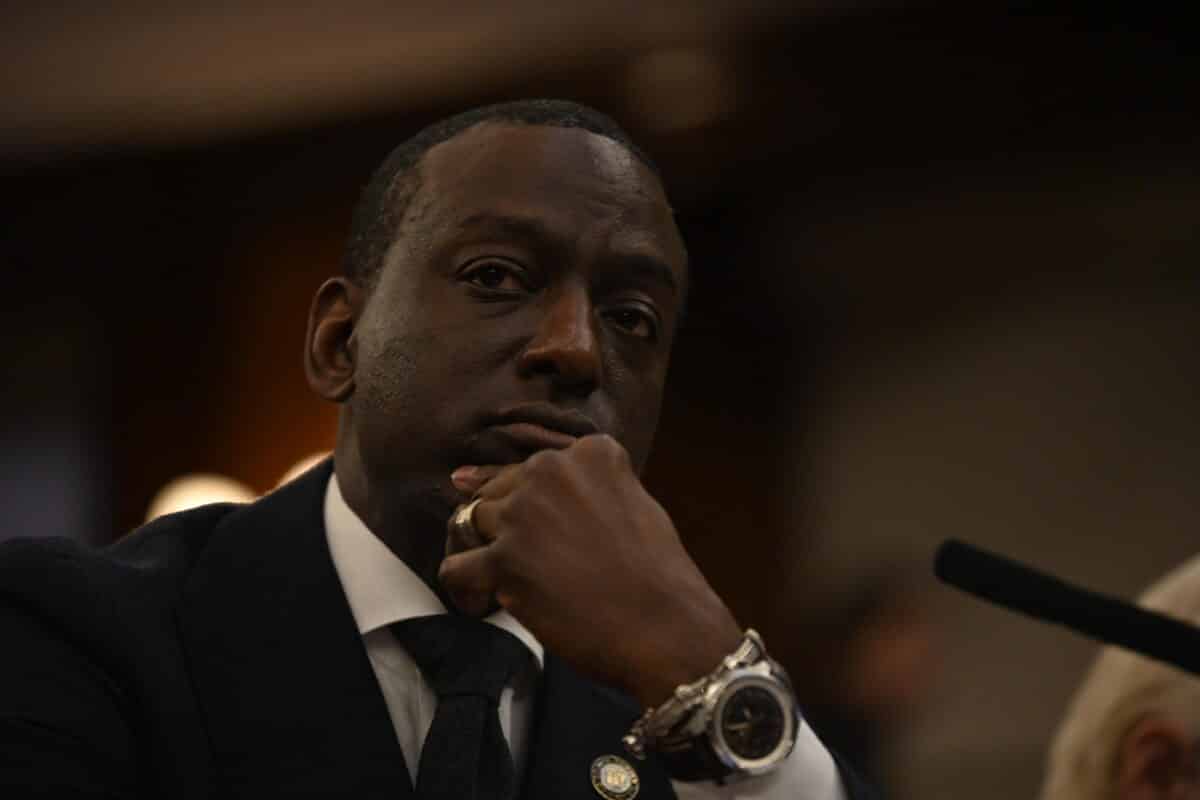
Some posited other reasons for the council members’ change of heart.
Basil Smikle, a veteran political consultant and head of Hunter College’s Public Policy Program, said some members may have also been swayed by their colleague Yusef Salaam getting pulled over by cops on Friday. Salaam said he was stopped without being given an explanation, which appeared to be corroborated in audio reported by the New York Times. But the NYPD later said Salaam was stopped for driving windows tinted beyond the legal limit and temporary Georgia license plates.
According to Salaam, the stop showed why they needed to have How Many Stops to bring transparency to police stops happening in the shadows.
“It’s possible that some of the conversation around Yusef Salaam’s stop, being pulled over by the police, and the conversation that kind of took place around that gave members an opportunity to see the potential value of this bill, in real time,” Smikle said.
Furthermore, Smikle said, the mayor’s railing against the legislation after it passed may have done the opposite of its intended purpose and pushed more members to support for the override. That included many times when Adams suggested council members did not fully understand the impact of the legislation they approved.
“I think in many ways he came across as being dismissive of the council’s concerns,” Smikle said. “And I don’t think he appropriately laid out how this bill would keep police officers from doing their day-to-day jobs … His response was ‘do a ride along’ and I just felt that that was insufficient and doesn’t really appropriately get to the point.”



